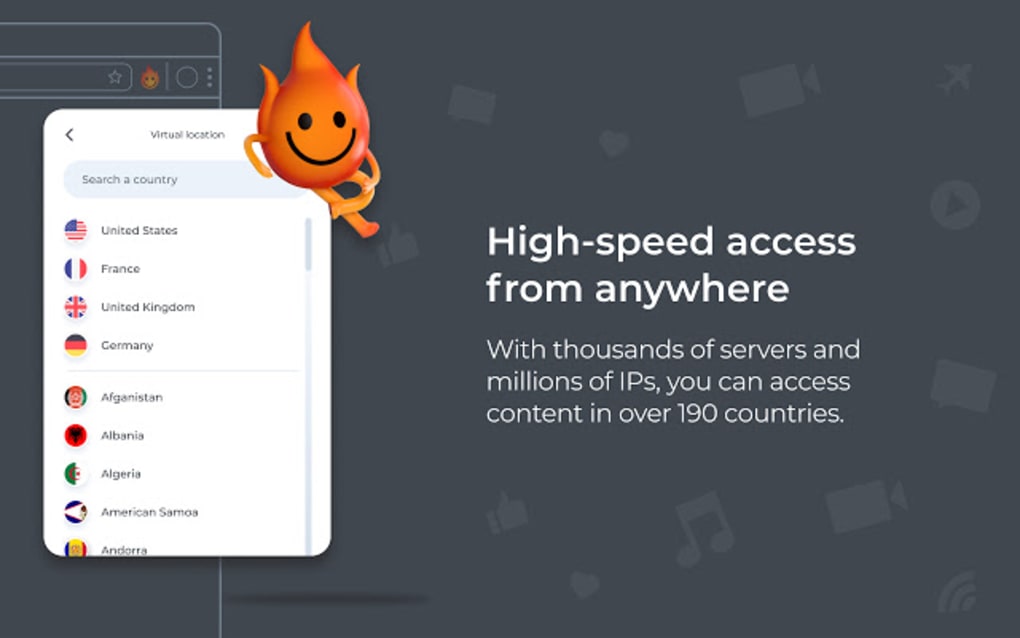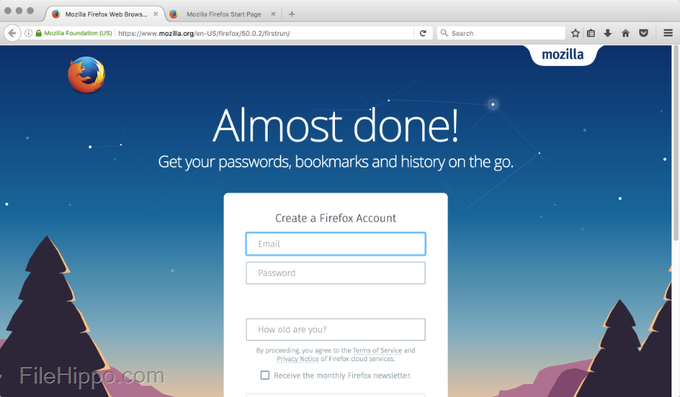

Examples include NordVPN, Cyberghost, Hola, and many others. The vast majority of VPN ‘add-ons’ are lightweight browser proxies. Unlike a proxy the full VPN is encrypted and protects everything on your device, from in browser or from any other apps. This means it takes up more space on your device (you will need the actual VPN app installed as well), but also allows it to offer a full VPN rather than just a proxy. This means that anyone, from your ISP, to hackers to the government, could look in on your activity.Ī VPN remote control, on the other hand, connects to a full VPN installed on your computer.

They will not affect traffic from other apps, such as email or video chat. Lightweight browser proxies will mask the IP address of some of your activity – but only for things carried out in the browser. Which type you use is up to you, but there are some important differences to keep in mind before you make a commitment.
DOWNLOAD HOLA FOR FIREFOX MAC HOW TO

Installation is super simple, too, and won’t take more than a couple of minutes of your time.
DOWNLOAD HOLA FOR FIREFOX MAC INSTALL
That said, there are still real benefits to a browser proxy – they make a lightweight addition to your browser without the need to install a full VPN, and they can often give you access to geo-restricted content, like Netflix. However, a Firefox VPN extension will boost your privacy by hiding your IP address, geo-spoofing your location, and encrypting your web traffic.Īn important note, though, is that most browser VPN extensions are not really VPNs at all, they are proxies that do not encrypt your traffic securely, and only reroute your browser traffic.Īny traffic from other apps, like Skype, BitTorrent, or Steam, will not be anonymized at all, and even your browser traffic will be visible to your ISP. Mozilla Firefox is a great private web browser.


 0 kommentar(er)
0 kommentar(er)
